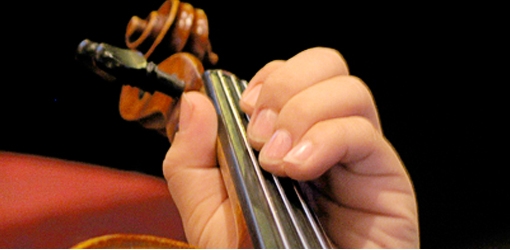 Turns out your mother was right about practising the piano. A new study from Concordia University and the Montreal Neurological Institute backs up the nagging mothers of the world by showing that starting music lessons at a young age helps form stronger connections in the brain. The study, published in the Journal of Neuroscience, suggests that musical training before age 7 has a significant effect on the development of the brain, an effect substantial enough to actually be seen on brain scans. That was what surprised researcher Virginia Penhune, a psychology professor at Concordia, who oversaw the study in collaboration with Robert Zatorre of the MNI, a cognitive neuroscientist at McGill University.
Turns out your mother was right about practising the piano. A new study from Concordia University and the Montreal Neurological Institute backs up the nagging mothers of the world by showing that starting music lessons at a young age helps form stronger connections in the brain. The study, published in the Journal of Neuroscience, suggests that musical training before age 7 has a significant effect on the development of the brain, an effect substantial enough to actually be seen on brain scans. That was what surprised researcher Virginia Penhune, a psychology professor at Concordia, who oversaw the study in collaboration with Robert Zatorre of the MNI, a cognitive neuroscientist at McGill University.
The study tested 36 adult participants on a movement task, and scanned their brains. Half had musical training before age 7, while the other half began at a later age, although the two groups had equal years of musical training and experience. The groups were also compared with people who had little or no formal musical training.
They were asked to do visual and auditory rhythm reproductions, and the group that had early exposure to music displayed superior accuracy and timing. Even after two days of practising equally, the group with the early musical training performed better. The conclusion? Early musical training has an effect on brain development to produce long-lasting changes in motor abilities and brain structure.
Read the full story from The Montreal Gazette
Related Coverage
Le Devoir | La musique dans la tête
Radio Canada | Quand la musique crée des connexions… cérébrales
Daily Mail | Those violin lessons weren’t a waste of time after all: Learning an instrument ‘makes children grow up smarter’
Le Figaro | Comment l’apprentissage de la musique modifie l’activité du cerveau
February 14, 2013
